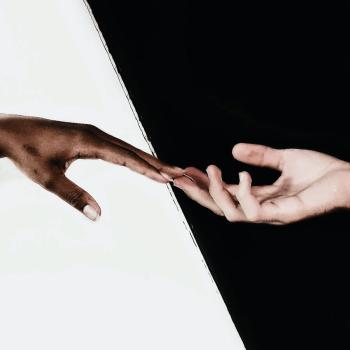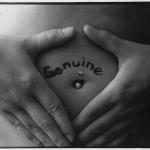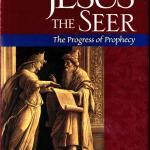
Why do atheists become Christians and why do Christians become atheists? Why does the resurrection feel like intellectual suicide to some and eternal life to others? There is two-way traffic between the sacred and the secular, so what is it that drives the commuter habits of the converted and deconverted?
Unbelievable? tackled these questions with the help of Dr. Jana Harmon and Dr. Joel Furches. Harmon did her PhD thesis on atheist conversion to Christianity and currently hosts the “Side B” story-driven apologetics podcast. Furches is a psychologist and religion researcher who has recently looked at the deconversion of Christians and published his results in a fascinating blog post, Why do Christians Become Atheists? A Case Study.
Setting the Conditions
Furches has studied both conversion and deconversion and noted that the process of losing one’s faith is more predictable than discovering it. He broke down the deconversion journey into a five-stage process that begins with the setting conditions, progresses through stressors, trigger events and processing, and ultimately ends in deconversion.
Interestingly, Furches concluded that deconversion wasn’t driven by the appeal of atheism but rather antipathy towards Christianity. Atheism, rather than being an intellectual oasis, was more of a safe space where the deconverted could go to dissociate themselves from bad religious experiences. He said:
“Deconversion is an escape behavior. You’re not going towards something attractive but you’re leaving something aversive…The primary driver of deconversion is not atheism or the secular world, although that’s a facilitator.”
Furches described deconversion as escape from the setting conditions of a rigid faith that is often described as fundamentalist. He, however, recognizes that the word ‘fundamentalist’ is a vague term and feels it is helpful to break it down into five component parts.
The first is performance control, which is the expectation that the members of a church will conform to stringent standards of thought and behavior and be subject to shame if they fall out of line. The second is textualism which refers to rigid and literal scriptural interpretation. The third, isolationism, refers to segregation of the community from the outside world by preventing ideas from entering and questions from leaving. The fourth is spiritualism where disproportionate importance is given to angels, demons and apocalyptic prophecy. The final category is compulsive certainty where doubt is viewed as a sign of weakness or lack of faith.
Furches’ findings are fascinating and consistent with the stories of many of the atheist guests on Unbelievable? Sadly, the setting conditions experienced by our atheist friends often become the stereotype for all Christians and form a barrier to conversation. Personally, I can’t relate to many of the criticisms put forth by atheists because their critiques are aimed at a Christianity I don’t recognize. Christians, however, cannot toss the first stone because they are also guilty of stereotyping atheists based on the setting conditions of a fundamentalist atheism that most atheists probably don’t recognize either.
Smashing the Stereotype
Harmon stated that long before the pandemic, Christians and atheists have been social distancing. The stereotypes they have created have discouraged travel outside their respective silos for fear of encountering an atheist or Christian bogey-man. We need to be very careful when we create strawmen, because they are highly flammable and every heated conversation quickly becomes a conflagration which reduces both sides to ash. Sadly, atheists and Christians have become very good at defending their positions but very poor at doing it with gentleness and respect.
The problem of overcoming stereotypes was exemplified by the story of a person called Mike who Harmon interviewed and whose story we heard on Unbelievable?. Mike was a self-professed angry militant atheist, who through a series of events encountered a group of Christians who didn’t match his preconceived religious profile. He noted that they weren’t preachy and didn’t try to wiggle Jesus into every conversation. In fact, they didn’t talk about Jesus at all until he brought it up to provoke an argument. The graciousness of their response and genuine interest in his thoughts prompted him to take Christianity seriously.
White Washed Tombs
One of the common charges leveled against Christians is their hypocrisy. Furches, however, found that “Hypocrisy is surprisingly low on the list of complaints”. His conclusion is further substantiated by the findings of David Kinnaman and Gabe Lyons in their book UnChristian: What a New Generation Really Thinks About Christianity…and Why it Matters:
“When they criticize Christians for being hypocrites, they are not excusing it. Yet they have become so jaded by the holes in people’s lifestyles that they are no longer shocked to find incongruence between words and actions.”
Outsiders are quite familiar with hypocrisy and expect to encounter it everywhere so it is not the hypocrisy that’s the problem as much as the delusional Christian claim that they aren’t hypocrites. It is the futile efforts to deny our hypocrisy rather than the hypocrisy itself that makes others cringe. Maybe our witness would be more powerful if instead of praying “thank you, God, that I am not like hypocrites,” we bowed our head, beat our breast and prayed, “God, be merciful to me, a hypocrite”.
We need to stop trying to earn our spot at the head of the line to obtain a get-out-of-hell free card because Jesus is already at the back of the line graciously handing out get-into-heaven free cards to those who admit they can’t do it by themselves.
Apologetics of Hypocrisy
We can tell our friends and neighbors how good Christianity will make them but eventually they will turn on the television or open the paper and see our hypocrisy on display. We are the victims of our own message. Our inability to fully live up to the demands of the gospel is used against us when it is perhaps the best evidence for the need of a shared savior. Our appeal to the atoning work of Jesus should not be drowned out by the tooting of our own horns.
Advertising Christianity as a way to improve one’s behavior just makes us one more religious group handing out self-help flyers in the spiritual marketplace. Humanists, Buddhists, Muslims, Hindus and New Agers all offer similar promises of better behavior. However, polishing one’s manners is nothing special but admitting that we are tarnished is.
We need to make it clear to seekers that that we are not venetian vases of religious piety but rather broken jars of clay incapable of perfectly containing the Living Water. The Church isn’t a museum where we are put on display but a Potter’s wheel where we go for needed repairs. The truly revolutionary idea of Christianity is that despite our inability to perfectly do good or avoid evil we are still offered gracious forgiveness.
Interestingly, one way to gauge the power of one’s view of the world is to see if it is able to call out hypocrites. If you can’t be a hypocrite in your worldview then I would argue your worldview stands for nothing. It’s here that postmodernism fails because it is impossible to be hypocritical if your “truth” is always changing to match your feelings. While Christian hypocrisy is painful to see, it does prove that we stand for something quite substantial.
I like your Christ, I do not like your Christians
The oft well-intentioned desire to promote better Christian living ends up confusing grace with correction, and forgiveness with “don’t let it happen again”. Mary Jo Sharp, assistant professor of apologetics at Houston Baptist University and one of the featured speakers at the 2019 Unbelievable? conference wrote a very important book chronicling her experiences as a new believer encountering a judgmental church. The book’s title is Why I Still Believe, but it is the subtitle, A former Atheist’s Reckoning with the bad reputation Christians Give a Good God, that makes her book so powerful.
Mary Jo relates one particularly poignant scene that encapsulates the experience of far too many seekers. Mary Jo was excited to celebrate her new-found Christianity and found a church to make her public profession of faith. As she nervously entered the church, she was met by the pastor’s wife who immediately criticized the outfit she was wearing. Sadly, this was only the beginning of a seemingly unending procession of Christian cruelty. The fire of the Holy Spirit that had been ignited within her was extinguished by a brigade of Christian firefighters who felt that she had violated some sacred fire code.
Gandhi is reported to have said: “I like your Christ, I do not like your Christians. Your Christians are so unlike your Christ.” Mary Jo took that sentiment to the next level and even began to question Christ himself: “I can see that my distrust of Christians had transferred to a distrust of Jesus.” Emotionally hurt by the Church, she questioned her new-found faith. “By the end of our time at that second church, my faith in people had flatlined and my faith in God needed resuscitation.” I remember hearing someone say that the biggest obstacle to faith isn’t secularism but legalism. Sadly, I think that statement is far truer than we want to believe.
Take Up and Read
While our witness is important it must ultimately lead others to read the Bible and judge for themselves. It is one thing to tell others about God and show them how our lives have been changed but ultimately they must come face to face with the word of God. St. Augustine, in his Confessions, describes the transformative moment when he encountered scripture:
“So was I speaking and weeping in the most bitter contrition of my heart, when, lo! I heard from a neighboring house a voice, as of boy or girl, I know not, chanting, and oft repeating, ‘Take up and read; Take up and read…’ So checking the torrent of my tears, I arose; interpreting it to be no other than a command from God to open the book, and read the first chapter I should find…
I seized, opened, and in silence read that section on which my eyes first fell: Not in rioting and drunkenness, not in chambering and wantonness, not in strife and envying; but put ye on the Lord Jesus Christ and make not provision for the flesh, in concupiscence. No further would I read; nor needed I: for instantly at the end of this sentence, by a light as it were of serenity infused into my heart, all the darkness of doubt vanished away.”
The importance of ultimately reading scripture was highlighted by the experience of a person called Caroline who Harmon interviewed and whose story we heard on Unbelievable?. Caroline became a Christian, in part, because of her encounter with the Bible. She was amazed that it presented such a coherent story from beginning to end, which mirrored her experience of the world around her. She was disappointed that Christians hadn’t pointed her to scripture earlier in the process.
I think we are often embarrassed by the Bible because we feel it is such an odd collection of books that is often difficult to understand but we need to remember that God speaks through scripture and his words never return to him empty.
Conclusion
I think the bottom line is that the major factor regulating the commute between the sacred and secular is the strawmen we have allowed to direct traffic. The data and case histories presented by Harmon and Furches reveal that stereotyping is a significant threat to meaningful dialogue.
Fortunately, we have a show like Unbelievable? which serves as a template for how to break down stereotypes and promote civil and thought-provoking dialogue. Atheists and Christians won’t lay down their “preventative principle” if they feel they are in the heat of battle but they will if they know they have entered a demilitarized zone.
Listen to Jana Harmon and Joel Furches discussing conversion and deconversion

















